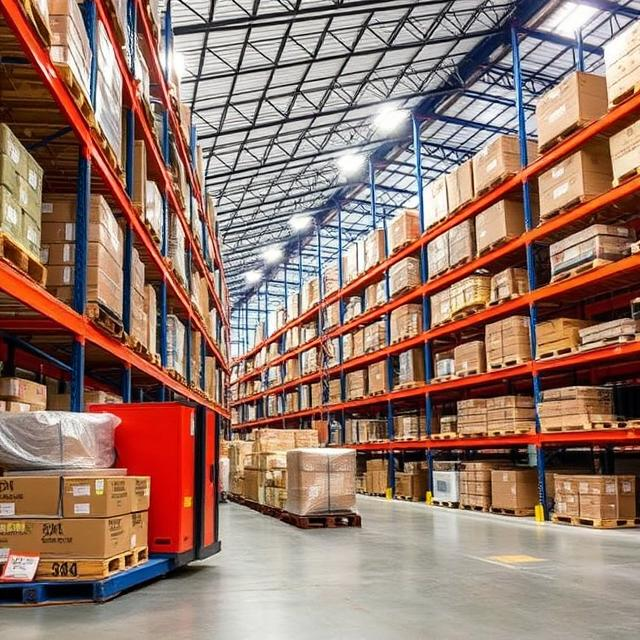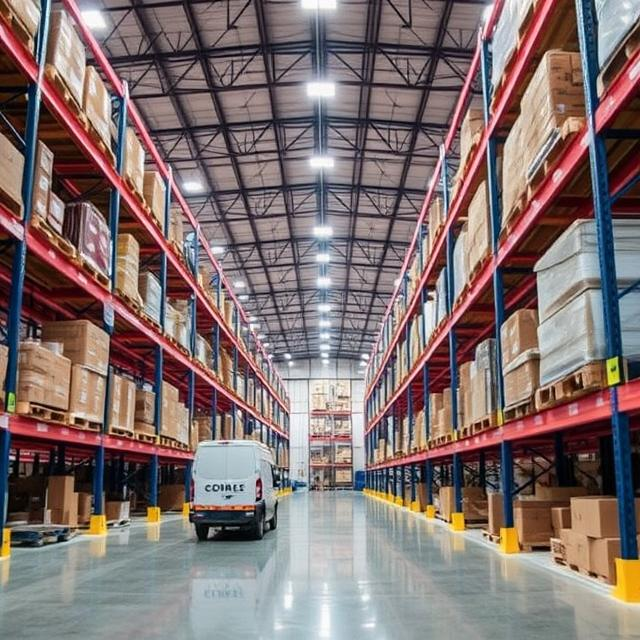Warehousing in India is undergoing a rapid transformation, driven by technological advancements such as Artificial Intelligence (AI) and the Internet of Things (IoT). With the rise of e-commerce, globalization, and increasing supply chain complexity, Warehouse Management Systems (WMS) are evolving to incorporate smart technologies, ensuring better efficiency, accuracy, and scalability. Logistics providers, including Asia agent firms, are leveraging AI and IoT to enhance operations and meet the growing demands of the industry.
The Evolution of Warehousing in India
Shift Towards Smart Warehousing
- Automation of Processes: AI-driven automation is streamlining warehouse operations, reducing dependency on manual labor.
- Enhanced Inventory Management: IoT sensors help track stock levels in real time, reducing the risk of overstocking or stockouts.
- Faster Order Fulfillment: AI-powered WMS ensures seamless coordination between storage, picking, and dispatch.
The Impact of AI on Warehouse Management
Artificial Intelligence plays a crucial role in optimizing warehouse operations by enabling:- Predictive Analytics: AI can forecast demand patterns, allowing warehouses to adjust stock levels accordingly.
- Automated Decision-Making: AI-powered WMS can make real-time adjustments to improve efficiency.
- Robotic Process Automation (RPA): AI-driven robots assist in sorting, packing, and inventory control, reducing operational costs.
IoT in Warehouse Management Systems
The integration of IoT in WMS enhances warehouse efficiency through:- Real-Time Tracking: IoT devices provide instant updates on goods movement within the warehouse.
- Smart Sensors: Temperature, humidity, and security sensors help maintain optimal storage conditions.
- Connected Logistics: IoT enables seamless communication between supply chain components, improving overall logistics flow.
Key Benefits of AI & IoT in WMS Implementation
Improved Inventory Accuracy
- AI-driven analytics help reduce discrepancies and enhance stock visibility.
- IoT-enabled tracking minimizes the risk of misplaced or lost inventory.
Enhanced Warehouse Efficiency
- AI algorithms optimize storage allocation, ensuring better space utilization.
- IoT automation reduces processing time, enabling faster order fulfillment.
Cost Reduction and Sustainability
- Reduced labor costs through automation and robotic integration.
- Smart energy management systems help minimize power consumption.
- Predictive maintenance lowers equipment downtime and operational expenses.
Challenges in AI & IoT Integration in Warehousing
Despite its numerous benefits, the adoption of AI and IoT in warehouse management comes with challenges:- High Initial Investment: Implementing AI-driven WMS requires significant capital investment.
- Data Security Concerns: IoT-connected devices can be vulnerable to cyber threats if not secured properly.
- Skill Gap: Workforce training is required to operate and maintain AI and IoT-enabled systems.

